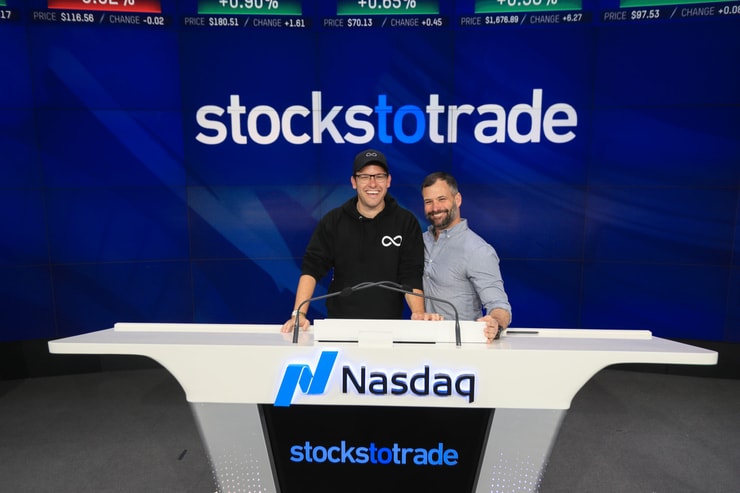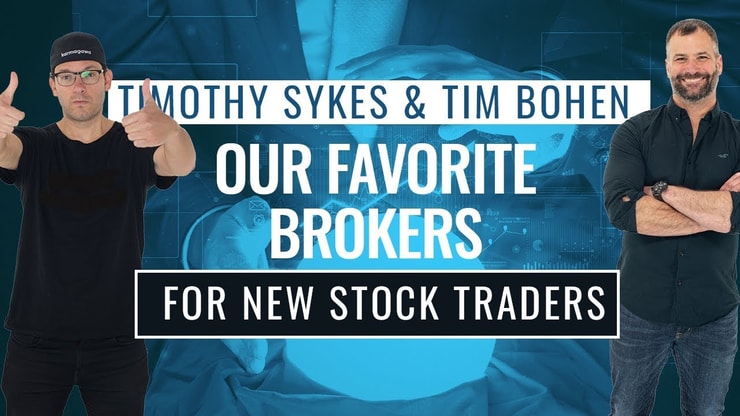Canada stock exchanges are platforms where buyers and sellers engage in the trading of financial instruments like stocks, bonds, and futures. With major exchanges like the Toronto Stock Exchange (TSX) playing a pivotal role, these markets serve as crucial components in the Canadian financial system, driving economic growth and offering investment opportunities. Let’s dive in, cutting through the noise, and laying it all on the table.
Read this article because it demystifies Canadian stock exchanges, breaking down their roles, types, and how they fit into the broader financial landscape of Canada.
I’ll answer the following questions:
- What is a Canadian stock exchange and how does it operate?
- How do stock exchanges differ from the broader stock market?
- What is the importance of stock exchanges in Canada’s financial system?
- How do stock markets work in Canada?
- What time do stock markets open and close in Canada?
- What are brokerages and how do they fit into the trading ecosystem?
- What are the most recognized exchanges in Canada?
- How can beginners start investing in Canadian stock exchanges?
Still with me? Good. Now let’s dig into the details.
Table of Contents
- 1 What Is a Canadian Stock Exchange?
- 2 Most Recognized Exchanges in Canada
- 3 Why Invest in the Stock Market?
- 4 Key Takeaways
- 5 FAQs About Canadian Stock Exchanges
- 5.1 How Do Stock Exchanges Differ from Stock Markets?
- 5.2 Why Are There Multiple Stock Exchanges in Canada?
- 5.3 How Can Beginners Start Investing in Canadian Stock Exchanges?
- 5.4 How Do I Navigate Canadian Securities Exchange’s Website?
- 5.5 What Are the Listing Requirements for TSX Alpha Exchange?
- 5.6 What Opinions Should I Consider Before Investing?
- 5.7 Which Canadian Cities Are Financial Hubs?
- 5.8 Are There Any Investment Opportunities in New Brunswick and Manitoba?
- 5.9 What Investment Opportunity Is Available in Saskatchewan?
- 5.10 How Reliable Are Reviews on Third Party Sites?
- 5.11 Is the TSX Alpha Exchange Similar to the Canadian Securities Exchange?
What Is a Canadian Stock Exchange?

2025 Millionaire Media, LLCA Canadian stock exchange is an organized market in Canada where securities like stocks, bonds, and futures are bought and sold. But here’s the kicker: Not all exchanges are created equal. You’ve got your giants like the TSX and then smaller ones like the TSX Venture Exchange. Knowing where to trade and what each exchange offers can make all the difference. This isn’t a place to wing it; research, policies, and member access rights are crucial. Trust me, I’ve been trading for years, and the rules of engagement differ from one exchange to another.
While it’s essential to know the types of exchanges available in Canada, it’s equally crucial to understand the role of research and policies. Each exchange has its own set of rules, listing requirements, and trading policies. Ignoring these can cost you big time. So, before you dive into trading, make sure you’re well-versed in the specifics of the exchange you’re interested in. Want to know how to buy stock in Canada with all the rules in mind? Check out this comprehensive guide on how to buy stock in Canada.
What Is the Stock Market?
Alright, so you’re getting the hang of what a stock exchange is, now let’s broaden that to the stock market. The stock market isn’t just one exchange but a network of exchanges and brokers that facilitate the buying and selling of securities. Just like I don’t stick to one pattern in trading, diversifying across markets and securities is often a good move. When I teach, I stress the need to understand the broader market landscape, which involves more than just stock exchanges but also third-party sites and news sources for research.
Importance of Stock Exchanges in Canada’s Financial System
Canadian stock exchanges are not just marketplaces; they’re key pillars in Canada’s financial system, helping organizations to raise capital. They provide liquidity, match buyers and sellers, and help establish price transparency in securities trading. But they’re also bound by rules and regulations, ensuring a level playing field. Just like I expose promoters and thieves in the market, these institutions maintain integrity. I’ve always said, knowledge is power, and understanding the nuts and bolts of these exchanges can make you a smarter trader.
More Breaking News
- SaverOne: The Latest Updates and Market Trends
- Why is BitMine Immersion Rising?
- MediaCo’s Latest Moves: Is An Upswing On The Horizon?
How the Stock Market Works in Canada
Stock markets in Canada operate under a specific set of rules and technologies. Automated trading platforms and brokers facilitate transactions, with the TMX group playing a significant role. If you think trading penny stocks is complex, try understanding market operations without due diligence. From my years of trading, I can tell you that each stock exchange has its own listing requirements and trading purposes.
What Time Do Stock Markets Open in Canada?
Stock markets in Canada generally open at 9:30 AM and close at 4:00 PM Eastern Time. There’s no rest for the wicked, though. Just like I keep tabs on the market around the clock, you should too. Time zones across Canada — from British Columbia to Newfoundland — mean that you’ve got to be strategic about when you trade, especially if you’re using trading tools or relying on real-time data for your moves.
What Are Brokerages?
Brokerages are the middlemen you can’t avoid; they execute your trades on exchanges. In Canada, you’ve got a wide array of brokerages to choose from, each with its unique offerings and fee structures. I’ve never been about the ‘all or nothing’ approach; it’s about finding a brokerage that fits your trading style and financial goals. I’ve trained thousands to pick wisely — consider their technology, services, and how they align with your trading needs.
Of course, a broker won’t help you trade the stocks on your watchlist if it can’t access your target markets. For insights on how to navigate the brokerage landscape for Canadian Reddit stocks, here’s a guide on how to invest in stocks in Canada through Reddit.
Most Recognized Exchanges in Canada
Information on these platforms is crucial. You’ve got content ranging from accounting data to tax rates, questions about funds, and even CDS Insights offered by TMX Datalinx. Financial responsibility is the name of the game here. Whether you’re in Quebec or Prince Edward Island, the information and opportunities are universal.
Just as you can access exchanges in the United States from Canada, you can be in Vancouver, Calgary, or even Nova Scotia and still partake in trades across the world. And vice versa — international traders can access all of these exchanges with the right broker.
Alpha Exchange Inc. and Alpha ATS
Alpha Exchange and Alpha ATS are recognized for their advanced trading platforms that support a range of financial instruments from stocks to futures. Both are members of the larger TMX Group, but they serve specific market niches. They have distinct listing policies and serve different types of investors. If you’re trading patterns like I do, knowing these nuances can offer you a competitive edge.
Aequitas Innovations Inc. and Neo Exchange Inc. (Cboe Canada)
Another pair worth knowing are Aequitas Innovations and Neo Exchange. These exchanges are built around technology, aiming to level the playing field between retail and institutional traders. When I say I don’t believe in stocks, but trade patterns, platforms like these can provide the level of detail you need for that approach.
Nasdaq CXC Limited
Though an American brand, Nasdaq CXC Limited offers a range of services in Canada, from equity trading to trade reporting. It’s essential to note that it operates under different regulations compared to other Canadian exchanges. It’s about as diverse as the students I’ve taught, from Canada to Australia, each needing a unique approach to trading.
TMX Group Limited and TSX Inc.
The big dogs in the yard are TMX Group and TSX Inc. They’re known for high volumes and wide-ranging types of securities from bonds to futures. The TMX Group also owns other affiliate exchanges like the TSX Venture Exchange. Think of it as the main event, but don’t disregard the other players. A diverse portfolio often leads to better returns, and my years of trading reflect that.
Why Invest in the Stock Market?

2025 Millionaire Media, LLCWhy even bother investing in the stock market? Truth is, it’s not for everyone. But if you’re in it, you’re in it for growth. Whether it’s penny stocks or blue chips, the stock market offers financial opportunities that few other institutions can. But remember, always keep your risk tight and cut losses quickly; I’ve learned that the hard way so you don’t have to.
Investing in the stock market isn’t a one-size-fits-all approach. From penny stocks to blue chips, the types of stocks you can invest in are diverse. Each comes with its own set of risks and rewards. The key is to diversify your portfolio to balance out the risks. If you’re new to this and wondering what types of stocks to consider for a diversified portfolio, take a look at this guide on different types of stocks.
Key Takeaways
Canadian Stock Exchanges are more than just marketplaces; they’re an integral part of the Canadian financial ecosystem. Understanding the differences, trading hours, and brokerages can set you up for success or failure. So do your homework, plan your trades, and trade your plan.
Trading isn’t rocket science. It’s a skill you build and work on like any other. Trading has changed my life, and I think this way of life should be open to more people…
I’ve built my Trading Challenge to pass on the things I had to learn for myself. It’s the kind of community that I wish I had when I was starting out.
We don’t accept everyone. If you’re up for the challenge — I want to hear from you.
Apply to the Trading Challenge here.
Trading is a battlefield. The more knowledge you have, the better prepared you’ll be.
What Canadian stock markets have you traded on? Let me know in the comments — I love hearing from my readers!
FAQs About Canadian Stock Exchanges

2025 Millionaire Media, LLCHow Do Stock Exchanges Differ from Stock Markets?
Stock exchanges are the actual venues where stock buyers connect with sellers. Stock markets are broader, encompassing a network of exchanges, brokers, and other financial entities. The distinction matters, especially when you’re navigating the complexities of trading different types of securities.
Why Are There Multiple Stock Exchanges in Canada?
Diversity is strength, even in financial markets. Multiple stock exchanges allow for a wider range of investment options and financial instruments. Whether you’re into day trading like me or looking at long-term investment, each exchange offers something unique.
How Can Beginners Start Investing in Canadian Stock Exchanges?
Begin by understanding what each exchange offers, the kinds of securities you’re interested in, and how they fit into your financial goals. Then, choose a brokerage that aligns with your needs.
To navigate the Canadian Securities Exchange’s website, you’ll likely use your browser’s menu and page links. JavaScript should be enabled for seamless navigation.
What Are the Listing Requirements for TSX Alpha Exchange?
Issuers seeking listings on the TSX Alpha Exchange have to meet various business-related criteria. Typically, the company must disclose its shares, business model, and other relevant information.
What Opinions Should I Consider Before Investing?
Before investing, it’s advisable to look at different opinions and reviews from credible affiliates and third party sites. Always be aware that such opinions are not professional advice.
Which Canadian Cities Are Financial Hubs?
Montreal, Ottawa, and Winnipeg are significant financial hubs in Canada. Alberta and Halifax are also important, especially for real estate investments.
Are There Any Investment Opportunities in New Brunswick and Manitoba?
Yes, New Brunswick and Manitoba offer several investment opportunities. Whether it’s real estate, company shares, or business ventures, you’ll find parties interested in various types of investments.
What Investment Opportunity Is Available in Saskatchewan?
Saskatchewan presents various investment opportunities in sectors like agriculture, natural resources, and technology. Whether you’re looking at company shares listed on Canadian exchanges or direct business ventures, the province offers a diverse range of options for investors.
How Reliable Are Reviews on Third Party Sites?
Reviews on third party sites can offer multiple views but always double-check this information with credible sources. These reviews may not constitute professional advice.
Is the TSX Alpha Exchange Similar to the Canadian Securities Exchange?
Both the TSX Alpha Exchange and the Canadian Securities Exchange are key players in the Canadian financial market. However, they may have different listings, and the issuers may vary in terms of business scale and opportunities.











Leave a reply